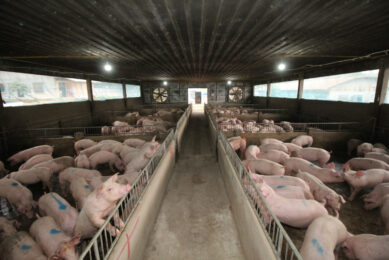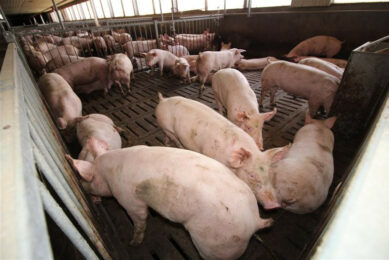Scientists to protect NI from African Swine fever
Scientists from Queen’s University Belfast are involved in an international project aimed to protect Northern Ireland’s agri-food industry from African swine fever.
Local researchers in the AFRISK project are working with 16 partner institutes around the world including Africa and the Far East to provide new ways of detecting African Swine Fever (ASF) and reduce the risk of the disease being imported into EU member states.
EC-funded
Gordon Allan, an Honorary Professor at Queen’s who is also a Principal Scientific Officer in the Agri-Food and Biosciences Institute (AFBI), is leading researchers in the European Commission-funded projects, which have each been awarded £130,000.
Professor Allan said: “This virus poses a significant threat to the agri-food industry in Northern Ireland and rapid detection in any suspect infected animals is an important step in controlling and eliminating potential outbreaks of the disease.”
African Swine Fever, has recently spread across Europe, and is no longer confined to sub-Sahara African states, and recent outbreaks have been recorded in Sardinia, Georgia, Armenia and southern Russia. Global warming and climate change are thought to be increasing the spread of the disease in Europe.
Professor Allan explained: “It is important to the agri-food industry on the island of Ireland that researchers, both North and South of the border, continue to participate in these large EC-funded projects.
Multinational collaborations
These multinational collaborations enable locally-based scientists to input expertise but they also gain considerable information from partners around the world on how to successfully fight the increasing threat to our local industry.
“Infectious diseases do not recognise borders and multinational collaboration is the only effective way to combat their spread,” Allan concludes.
Related Website
• Queens University Belfast
Click here for the free Pig Progress newsletter
EC-funded
Gordon Allan, an Honorary Professor at Queen’s who is also a Principal Scientific Officer in the Agri-Food and Biosciences Institute (AFBI), is leading researchers in the European Commission-funded projects, which have each been awarded £130,000.
Professor Allan said: “This virus poses a significant threat to the agri-food industry in Northern Ireland and rapid detection in any suspect infected animals is an important step in controlling and eliminating potential outbreaks of the disease.”
African Swine Fever, has recently spread across Europe, and is no longer confined to sub-Sahara African states, and recent outbreaks have been recorded in Sardinia, Georgia, Armenia and southern Russia. Global warming and climate change are thought to be increasing the spread of the disease in Europe.
Professor Allan explained: “It is important to the agri-food industry on the island of Ireland that researchers, both North and South of the border, continue to participate in these large EC-funded projects.
Multinational collaborations
These multinational collaborations enable locally-based scientists to input expertise but they also gain considerable information from partners around the world on how to successfully fight the increasing threat to our local industry.
“Infectious diseases do not recognise borders and multinational collaboration is the only effective way to combat their spread,” Allan concludes.
Related Website
• Queens University Belfast
Click here for the free Pig Progress newsletter











